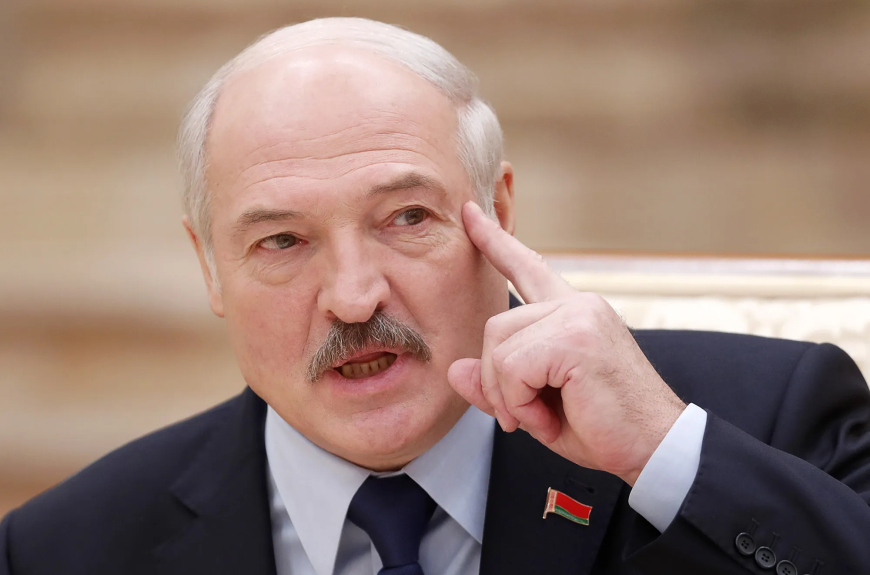Trump Praises Belarus Leader Hours Before Putin Meeting, Stirring Diplomatic Reactions
Hours before meeting Vladimir Putin in Moscow, President Donald Trump called Belarusian leader Alexander Lukashenko “highly respected,” sparking global reactions.

In a move that has already sparked waves across diplomatic circles, President Donald Trump referred to Belarusian President Alexander Lukashenko — long seen as one of Russian President Vladimir Putin’s closest allies — as “the highly respected” during a phone call just hours before his scheduled meeting with Putin in Moscow.
The remark, made late Friday evening, comes at a time when the geopolitical landscape in Eastern Europe remains tense, with Belarus increasingly isolated by the West due to its crackdown on dissent and close alignment with the Kremlin.
A Remark That Resonated in Moscow and Beyond
Trump’s call to Lukashenko, confirmed by both the White House and Belarusian state media, was described as a “cordial and constructive conversation” focusing on trade, regional stability, and “mutual respect between nations.” While the official statement stopped short of revealing specific agreements, the choice of words — especially the “highly respected” phrase — has been interpreted as a strong gesture of goodwill towards a leader who has faced years of Western sanctions.
Belarus has played a key role in Russia’s geopolitical strategy, acting as both a military staging ground and a political ally in times of rising confrontation with NATO. Trump’s warm words could signal a recalibration of U.S. foreign policy toward Eastern Europe, though analysts remain divided on the implications.
Timing and Symbolism
The timing of Trump’s praise is significant. The U.S. president is set to meet Vladimir Putin in Moscow on Saturday, August 16 — a high-profile diplomatic event that marks their first face-to-face discussion in over a year. Analysts say mentioning Lukashenko in positive terms just before meeting Putin could be a calculated move, aimed at signaling openness to broader talks involving Russia’s inner circle of allies.
“This wasn’t just casual flattery,” said Dr. Karen Phillips, a senior fellow in international relations at the Atlantic Policy Institute. “It was a deliberate diplomatic signal that the U.S. is willing to engage even with leaders outside the Western comfort zone, if it serves a larger strategic purpose.”
Western Allies React Cautiously
The reaction from U.S. allies in Europe has been muted but cautious. Officials in Brussels have expressed concern that Trump’s comments may undermine years of coordinated sanctions aimed at pressuring Lukashenko’s government to respect democratic norms and human rights.
Germany’s foreign ministry released a statement early Saturday, emphasizing that “any dialogue with Belarus must be grounded in a commitment to democratic reforms.” Meanwhile, in the United Kingdom, members of Parliament called for clarification on whether Trump’s comments represent a shift in U.S. policy or a one-off diplomatic courtesy.
Belarus Responds with Enthusiasm
Belarusian state television opened its Saturday morning news broadcast with clips of Lukashenko smiling during his call with Trump. The anchor described the conversation as “a new chapter in Belarus–U.S. relations” and hinted that bilateral discussions on agriculture, trade, and energy cooperation could soon follow.
According to political observers in Minsk, the praise from Trump has given Lukashenko a rare boost in international legitimacy, something the Belarusian leader has been seeking amid mounting economic troubles and continued protests at home.
Historical Context
Lukashenko, often described as “Europe’s last dictator” by Western media, has ruled Belarus since 1994. Over the decades, he has maintained tight control over the country’s political landscape, often through suppression of opposition voices and curtailing of press freedoms.
Despite this, Belarus has remained strategically vital for Russia, especially during periods of tension with NATO. The nation’s geographic location — bordering Poland, Lithuania, and Ukraine — makes it a critical buffer state in Moscow’s security doctrine.
For the U.S., relations with Belarus have been sporadic and often contentious. While there were brief moments of diplomatic thaw, especially in the early 2000s, the relationship has largely been defined by sanctions, mutual suspicion, and competing geopolitical interests.
The Road Ahead
Trump’s meeting with Putin later today will likely be scrutinized for any signs of alignment on Belarus policy. If the U.S. softens its stance toward Minsk, it could create friction within NATO and raise questions about Washington’s long-term commitment to supporting democratic movements in Eastern Europe.
However, some experts believe this could also open the door for pragmatic negotiations, especially on issues such as regional security, energy supply chains, and the ongoing war in Ukraine.
“The U.S. might be testing a back-channel approach,” said political analyst Mark Reynolds. “If Trump can use Lukashenko as a bridge to broader agreements with Russia, it could reshape the entire Eastern European security framework.”
Conclusion
Trump’s praise of Lukashenko just hours before his meeting with Putin is far more than a diplomatic nicety — it’s a signal with potentially wide-reaching consequences. Whether this move will foster new cooperation or deepen existing divides remains to be seen, but it has already ensured that Belarus will be part of the conversation in Moscow.








